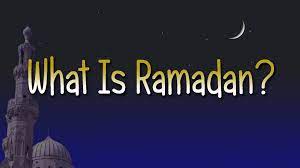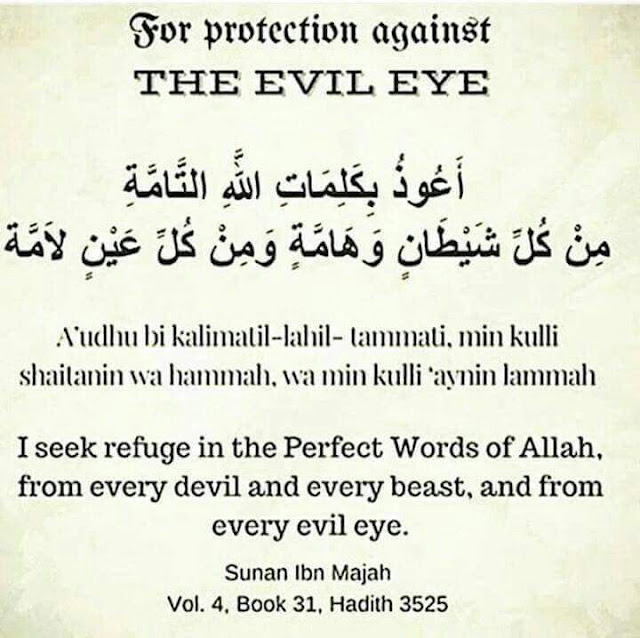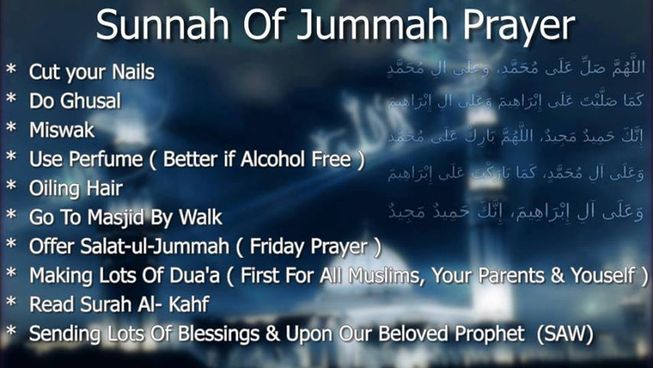The Month of Ramadan fasting, in Islam, introspection, and prayer for Muslims, the followers of Islam. It is celebrated as the month during which Muhammad received the initial revelations of the Quran, the holy book for Muslims. Fasting is one of the five fundamental principles of Islam. Each day during Ramadan, Muslims do not eat or drink from sunrise to sunset. They are also supposed to avoid impure thoughts and bad behavior. Muslims break their daily fasts by sharing meals with family and friends, and the end of Ramadan is celebrated with a three-day festival known as Eid al-Fitr, one of Islam’s major holidays. Ramadan always falls on the ninth month of the 12-month Islamic calendar. Ramadan 2021 begins at sunset on Monday, April 12, and ends on Wednesday, May 12.

Why Ramadan is the most sacred month in Islamic culture
EVERY YEAR, MUSLIMS around the world anticipate the sighting of the new crescent moon that signifies the official first day of Ramadan, the ninth month of the Islamic calendar and the most sacred month in Islamic culture.
When Is Ramadan?
Ramadan 2021 begins at sunset on Monday, April 12, and ends on Wednesday, May 12. The following year, Ramadan 2022 will begin at sunset on Saturday, April 2 and end on Sunday, May 1.

Ramadan is the ninth month of the 12-month Islamic calendar, a lunar calendar that’s based on the phases of the moon. The lunar calendar falls short of the solar calendar by 11 days.
Origin of Ramadan
Ramadan, one of the months in the Islamic calendar, was also part of ancient Arabs’ calendars. The naming of Ramadan stems from the Arabic root “ar-ramad,” which means scorching heat. Muslims believe that in A.D. 610, the angel Gabriel appeared to Prophet Muhammad and revealed to him the Quran, the Islamic holy book. That revelation, Laylat Al Qadar—or the “Night of Power”—is believed to have occurred during Ramadan. Muslims fast during that month as a way to commemorate the revelation of the Quran. (Read how Muslims, although often misunderstood, are thriving in America.)
Why Is Ramadan Celebrated?

Ramadan is celebrated as the month during which Muhammad received the initial revelations of what became the Quran, the holy book for Muslims, from God.
The Quran states:
“The month of Ramadhan [is that] in which was revealed the Qur’an, guidance for the people and clear proofs of guidance and criterion. So whoever sights [the new moon of] the month, let him fast it.”
Ramadan The Practice of Fasting
The act of fasting is meant to remind Muslims of the less fortunate and to reinforce the need to be thankful. As one of the five pillars, or duties, of Islam, fasting during the month of Ramadan is mandatory for all healthy adult Muslims. Children who have not reached puberty, the elderly, those who are physically or mentally incapable of fasting, pregnant women, breastfeeding mothers, and travelers are exempt.
Fasting in islam during Ramadan means abstinence from all food or drink, including water and chewing gum, from dawn to sunset. It is recommended that before sunrise, Muslims eat a pre-fast meal known as suhur. This meal often resembles breakfast, but in some cultures, it may include more dinner-like foods. After sundown, Muslims break their fast with iftar, a meal which usually starts with dates and water or milk, followed by dinner. Muslims are permitted to snack at night between those two meals, and hydration is encouraged, especially when Ramadan falls during summer.
For suhur, iftar and snacks, Muslims can more easily make it to sundown by eating high-fiber meals to sustain satiety over longer periods, fruits and vegetables to maintain electrolyte stores, and plenty of fluids to maintain hydration. Muslims should also limit fried foods and sugary sweets, the latter of which is a common cultural tradition among many ethnicities during the holy month.
After Ramadan, Muslims celebrate a three-day holiday called Eid-ul-Fitr. After this Eid ("celebration"), Muslims pray the holiday prayer in the congregation in the morning, visit family and friends, and celebrate over food, gifts and activities for children.
The True Meaning of Ramadan
Ramadan is the embodiment of reflection, revelation, revolution, and restoration. Prophet Muhammad (peace be upon him) began his journey into prophethood through reflection within. He was searching for a broader meaning in life that would restore justice and peace in society. He was looking for an answer that would transcend the need for material survival and transform humanity into a spiritually wholesome state. He reflected and meditated, spending many years in the sanctuary of a remote cave, surrounded by steep, barren, mountains situated in the outskirts of Mecca. Finally he received the answers in the form of divine revelations. It was in the ninth month of the Arabic calendar, known as Ramadan.
During Ramadan facts, Muslims in the United States encounter the additional challenge of keeping their fast and performing extra rituals in a non-observing environment where the majority does not fast. Yet my experience is that this extra challenge makes fasting more meaningful. It is this challenge that helps rejuvenate my weary spirit and expand my vision to embrace humanity as my own. This month also offers Muslims everywhere the opportunity to explain the meaning of Ramadan to non-Muslim friends, neighbours, and colleagues. Many mosques in the U.S.A, for example, extend an open invitation to non-Muslims to join their Muslim neighbours in breaking fasts in the mosque, thereby exposing them to the warmth of Muslim hospitality and to Islam’s rich cultural diversity.
Ramadan offers to any true seeker a self-reflective course, illuminated by eternal revelations, that has the power to bring a revolution of the heart and help restore justice, peace, and harmony in the world.
Questions about the Muslim holy month you were too embarrassed to ask
So do you lose weight during Ramadan?
Some of you may be thinking, "Wow, that sounds like a great way to lose weight! I'm going to try it!" But in fact, Ramadan is actually notorious for often causing weight gain. That's because eating large meals super early in the morning and late at night with a long period of low activity bordering on lethargy in between can wreak havoc on your metabolism.
But if you're careful, you can avoid putting on weight, and you may actually lose a few pounds. One meta-analysis of scientific studies on the effects of Ramadan fasting on body weight found that "[w]eight changes during Ramadan were relatively small and mostly reversed after Ramadan, gradually returning to pre-Ramadan status. Ramadan provides an opportunity to lose weight but structured and consistent lifestyle modifications are necessary to achieve lasting weight loss." [Italics mine.]
So just like with any other extreme diet plan, you may lose a few pounds, but unless you actually make "structured and consistent lifestyle modifications," you're probably not going to see major, lasting results.
Why do the dates of Ramadan change every year?
So that means that the first day of the month of Ramadan, which is the ninth month of the Islamic lunar calendar, moves backward by about 11 days each year.
This has a large impact on how people experience Ramadan from year to year. When Ramadan falls in the winter, it's much easier to fast: the days are shorter, which means you don't have to fast as long, and it's colder out, so not being able to drink water all day isn't as big of a deal because you're not sweating as much.
Conversely, when Ramadan falls in the summer, fasting can be brutal. In many Muslim countries in the Middle East and Africa, summer temperatures can reach levels usually reserved for the deepest bowels of hell.
What can I do to be respectful of my Muslim friends during Ramadan?
In some Muslim countries, it is a crime to eat and drink in public during the day in the month of Ramadan, even if you're not Muslim.
Of course, this is not the case in the United States, where we enjoy freedom of (and freedom from) religion. And most American Muslims, myself included, don't expect the non-Muslims around us to radically change their behavior to accommodate our religious fast during Ramadan.
The do’s and don’ts during Ramadan 2021
In preparation, we've put together a quick guide to everything you should and shouldn't do during Ramadan. Check out the list below:
--
DO wish your Muslim friends and colleagues a happy Ramadan. You may even wish them in Arabic by saying “Ramadan Kareem.”
DON’T eat, drink, or smoke in public. There will be designated areas in public spaces, but if it isn’t clear, it’s best to avoid them until you get home.
DO dress appropriately. There are already guidelines on how to dress in public, but you should be especially aware of your fashion choices during Ramadan. Ideally, make sure your clothes cover your shoulders and knees.
DON’T chew gum. This one is pretty easy to forget, so it may be in your best interests to ditch the chewing gum for the next month.
Usually we DO accept invitations to Iftar. Remember, it’s a big deal as it’s considered an honour to be invited and, it’s a great way to experience the culture. But this year given the new Dubai guidelines around Coronavirus, we recommend you stay at home and stay safe.
DO embrace the night. The city comes to life again after Iftar, so you better adjust your bodyclock in order to enjoy the things from home you normally enjoy in Dubai.
DON’T post pictures of your food online. Be mindful of your fasting followers and save the #cookingsnaps for after Iftar time.
DO avoid the roads. They can be chaotic in the hours before, during, and after Iftar. If you aren’t able to avoid them, proceed with caution.
DON’T worry if it sounds like a lot is going to change. Ramadan is a peaceful, quiet time of the year that should be enjoyed - and it only lasts a month.
Tips for Healthy Ramadan Fasting

Successful Ramadan Fasting
1. Stay hydrated. Try drinking fluid several times throughout the night, even if you aren't feeling too thirsty—thirst is a signal that your body is ALREADY dehydrated. Choose fluids that don't contain caffeine, because caffeinated drinks can be dehydrating. Remember, breaking your fast at iftar (the evening meal after sunset) with water not only is traditional, it ensures that you get the best source of hydration into your body before becoming distracted with food.
But, be careful and don't go overboard with drinking too much at one time. Trying to drink a few gallons all at once can dilute your body's electrolytes, inducing a potentially fatal condition called water intoxication.
2. Variety is the spice of life. Eat a variety of foods during the evening. Now, more than ever, your body needs good nourishment to compensate for the stress of fasting. Whole grains, vegetables, fruits, lean protein, healthy fat (fat from plants, like olive oil and nuts)—all of these are important to give your body all the nutrients it needs.
3. Portion size is important. It takes the body about 20 minutes to register that it's had enough to eat. So don't go overboard with eating during iftar. Eating mindfully and listening for when your hunger is actually satisfied puts less stress on your body and gives you more energy than eating huge amounts at one time.
4. Keep moving. Though fasting can be physically exhausting, try not to be completely sedentary. If you typically work out during the morning, see how your body feels if you switch exercise to the evening after breaking your fast. Strenuous exercise is not a good idea during the day because you can quickly become dehydrated. Think small—short easy walks (to classes or doing errands) or a few stretches can go a long way in keeping your energy up during the day.
5. A few secrets to a successful sehri (pre-sunrise meal). Together, the components of a balanced meal help your blood sugar remain most stable, which gives you good energy. Some of the elements to include in your sehri:
































